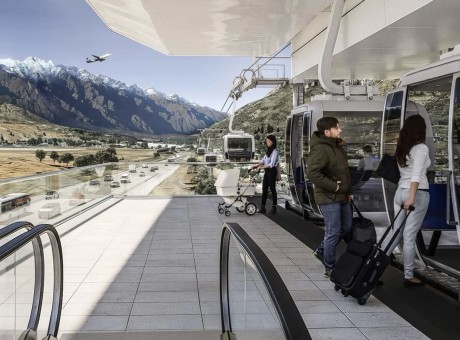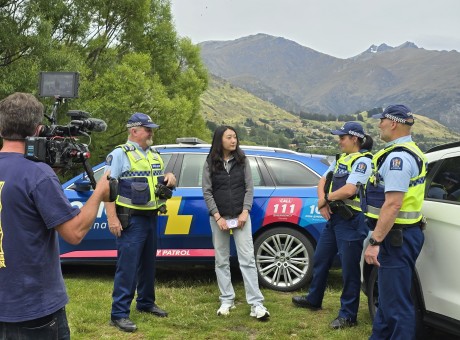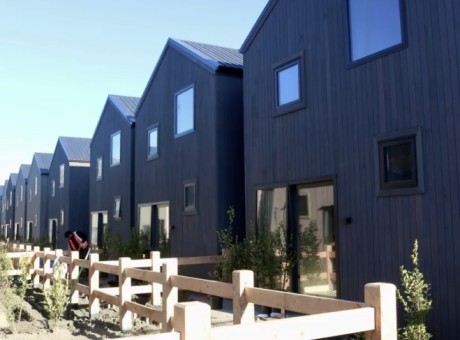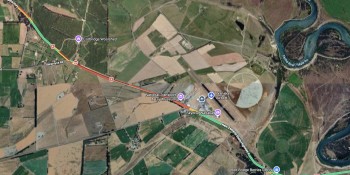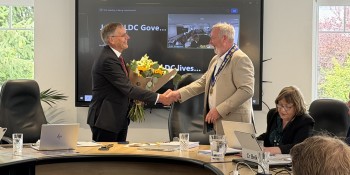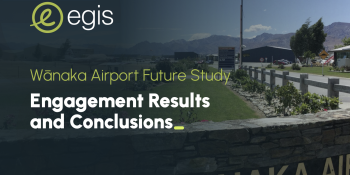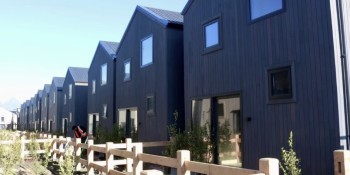Wanaka Chamber boss - "Don't be afraid of growth"
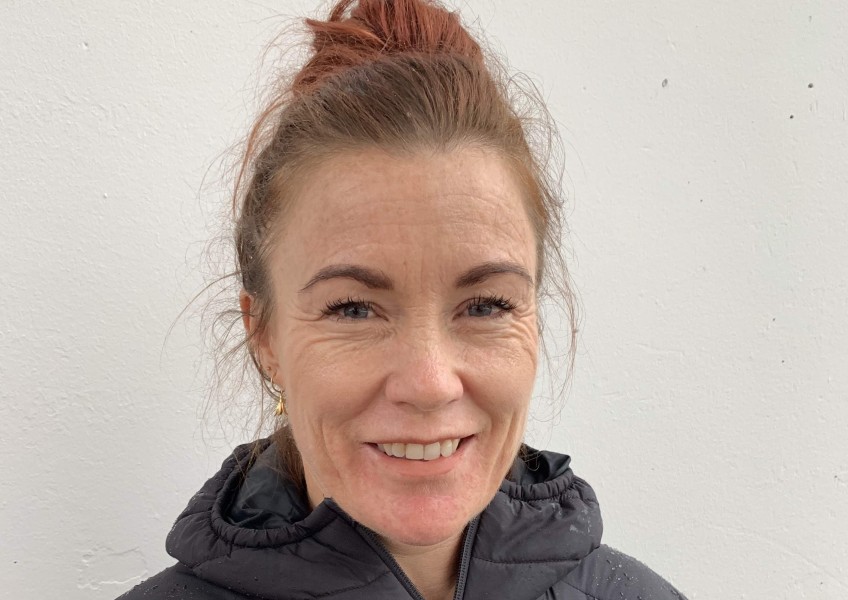
A korero with Wanaka Chamber Chair and Cardrona General Manager Bridget Legnavsky
“I have to take myself and my lifestyle out of the equation and look at it for my children. We all came here - I came here in 1993, and I don’t have the right to stop anyone else from coming here.”
Bridget Legnavsky is chair of the Wanaka Chamber of Commerce and General Manager of Cardrona. While she says they’re two really different hats, she sits down with Georgia Merton to share some of her own views on positive economic growth, and the importance of considering people, place and planet.
What brought you to Wanaka?
I was a competitive skiier - I’m from Lake Tekapo so I started on Mt Dobson. Straight after university I moved and started doing competitive skiing, here and overseas. I eventually became an instructor and a coach - always working with people!
What does the ideal future for Wanaka look like for you?
I want to see an interesting, diverse town that’s creative and fun, playful and beautiful. If we close it all down, we’re going to become a one-dimensional town. And, to be quite honest, that will be boring. We have to develop a community that has a sense of being and artistic creation, we don’t want to go to sleep.
And how does the airport play into that?
The airport was actually supported by the Chamber, and by the community, back in 2016. It was at that point that if anyone wanted to stop it it should have happened - it’s hard to see it now becoming a controversial topic.
I feel quite sad about it, actually, the way the community is reacting. If we can’t come together to find the right solutions for the future, it’s got the potential to halt and confuse good progress for our community.

Bridget Legnavsky with husband Pete and children Gustav and Zora.
What does this progress look like?
Well, a lot of our organic growth has actually been people, both from New Zealand and outside, coming to make Wanaka their home, not necessarily just tourism. Tourism just takes us up to the peak in summer. We know that we’re at capacity at this time, and none of us are trying to push more, but what we do know is that right now in May, June, October and November we are still a very quiet little town.
There are a lot of people out there that will be struggling right now because the numbers just aren’t there. If we’re going to think about growth we need to make sure we’re filling capacity where we have it. We have to be quite clever about that, and there needs to be an element of trust in the people who are putting their time and effort into it.
I had the opportunity to listen to the people in charge of the airport, and it was a real sense of relief to listen to the way they spoke - they’re really sincere and focused on sustainable development, and what it could look like to develop an environmentally savvy airport.
What about those who don’t want to see Wanaka change?
Yes, there are people that are terrified of what it’s going to do to change our town, and I understand that totally - I love Wanaka, but I also want to make sure that my children have opportunities as they grow up here.
What we’ve got to realise is it’s not our job as leaders in the community to think only about ourselves. I feel like my responsilibity right now is to make the best decisions for our children and their children. I have to take myself and my lifestyle out of the equation and look at it for their future.
What would that future look like?
Right now they have to go away to study, and they probably have to go away to get a decent job. It’s about diversifying our community, because that’s what makes us interesting, and that’s what keeps us growing in capability.
As Cardrona has grown, for example, we’ve gone from having 5 full-time employees to 70 - that’s 70 young people that are able to start looking at buying a house in this town, and they’re not highly paid people.
We have to stay diverse, because one thing we do know is that tourism is flattening and could easily take a dive. If it flattens or falls off, people will lose jobs, and they’ll have to leave. We actually can’t sit on our laurels and think people are going to keep coming, because they won’t. We have to keep progressing and moving forward to even maintain what we have now.
I think a lot about the opportunities - imagine if our kids are able to start a business here! But that won’t happen if we’re stagnating and it’s just the rich people that can afford to live here.
Do you think attitudes need to change?
This is what really gets to me emotionally - you can hear discrimination and racism throughout our community, about anyone who might want to come here. We all came here. I came here in 1993, and I don’t have the right to stop anyone else from coming here. My husband is Slovakian, he came here, we got married and had children. We’re a part of the community, and I don’t want to stop that.
Yes, we have to control it and make sure we look after the environment, but I think economic growth will help the community prosper. I get quite frustrated when I hear the word infrastructure getting thrown around - ‘we need better infrastructure’. I come from a business background, and simple business says you cannot develop infrastructure without some kind of forecast of growth. You can’t have one without the other.

Bridget Legnavsky started her career as a competitive skiier and instructor from Tekapo.
Is this something you’ve experienced at Cardrona?
Of course, when I talk from Cardrona, which I’m aware is from a very different position, we need growth. We’re on a major mission to become regarded as world class, which we’re miles away from right now.
People don’t drive up muddy roads overseas - at the moment we have to be so bloody good up here to counteract the fact that they do. One day when we have enough people, we can actually put a better system that stops cars blowing out C02 coming up and down the road. 75% of our carbon emissions actually come from visitors driving up and down the hill.
The absolute dream is to stop that, but we’re not going to be able to without growth. It all goes hand in hand. You can’t sit there and think we can sustain the environment and our people without thinking about how we’re going to pay for it - it’s circular.
And Cardrona uses its economic growth to drive its efforts towards overall wellbeing?
Yes - I feel so grateful to live amongst the Wayfare group, specifically the shareholders - they are so motivated as a family to look after this land and the people. Their economic success has allowed them to do so much more with their social and conservation work.
We’re all here because we believe in a life well lived, and I think I can say the same for much of the Wanaka community. There’s such a strong connection to our mountain, our Maunga. It’s spiritual between the people and the mountain here, and the feeling you have when you connect yourself with your land is absolutely phenomenal.
So, yes, from a very high level we have a lot of support in making sure that we’re considering the full picture when we think about our business.
Is this where triple bottom line accounting comes in?
Yes, so our monthly report of course has financial reporting, but that’s one part of it. The second part of it is our people. That refers to our whanau, or workforce - are they succeeding, are they being paid enough, have they got housing, are they happy?
How do you gather that kind of information?
We’re really hands-on, and we’re with them all the time. We’ve also got a big People and Performance team and that’s essentially their role. Why are people coming to us, why are they leaving, who’s gaining qualifications, who’s improving capability - that sort of thing is reported on constantly.
People goes even wider and considers our community, both Wanaka and Queenstown. A big thing for us is making sure the whole community is able to enjoy Cardrona too. Many of us hold leadership roles so we are understanding what’s going on, and we use the Cardrona Foundation to essentially house the conservation and community projects that we’ve got going.
Reporting on people also includes our shareholders, and our guests and their feedback, so it’s pretty broad.
And the third part of the triple bottom line - environmental?
We have a whole page dedicated to what we call sustainability. It reports on what we are doing in regards to reseeding, planting natives, and re-tussocking. On what we’re doing in regards to reducing what’s brought up the hill, and reducing waste. What are we doing to improve power efficiency, and decrease emissions? We constantly have to report that on a monthly basis to our board.
I also think it’s important to look at cultural sustainability, as is the Maori way - who are we as people? We need to understand that to become really authentic. We have a responsibility to bring Maori culture to the mountain. It’s the culture that underpins the whole country, and it’s the one strand that will hold us all together, and help that spiritual connection to become deeper.
The triple bottom line has been around for a while, do you think we’re seeing a re-emergence now?
Yes, and I think it’s something we should be so proud of as New Zealanders. There’s been an incredible movement over the last two or three years and for businesses it’s becoming something you just have to do. You can’t just talk about money any more. I think it’s a snowball effect and we all copy what we know is good and right.
What we’re seeing now is fantastic alignment led by Tourism New Zealand, and the Tourism Industry Association with their Sustainability Commitment. It’s brought a fluency of understanding around what Kaitiakitanga actually means now, and the richness of that word. We are so privileged to have this language and culture, and I think it’s been key in helping people to understand their responsibility to people, planet and place. That will be what helps us move forwards.
What do you think each of us in the community can do?
What I’m noticing is there’s a whole bunch of people that are reasonably happy, and they’re not saying anything - instead there’s an element of mistrust and aggression and anger that is quite hard to live amongst right now.
From a Chamber perspective, we’re urging everyone to vote, for example on the bed tax, even if they’re happy with the way things are going, so that we get the balance right.
From both perspectives, yes I want to see progress and growth. Like everyone, I want to make sure it’s really responsible growth that makes this place even better than it is now!





